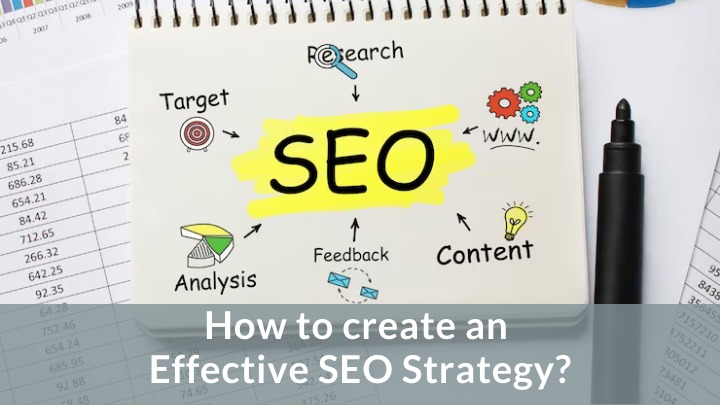
How to Craft an Unbeatable Plan for 2024 (and Beyond)
In today’s digital landscape, a strong SEO strategy is no longer a luxury – it’s a necessity. It’s the roadmap that propels your website to the top of search engine results pages (SERPs), attracting organic traffic and propelling your business forward. But crafting an effective SEO strategy can feel overwhelming. Don’t worry, we’ve got you covered.
This comprehensive guide unveils the secrets to building an SEO strategy that dominates search rankings. We’ll delve into keyword research, on-page optimization, technical SEO, link building, and more. By the end, you’ll be equipped to create a winning SEO plan that drives targeted visitors and skyrockets your website’s success.
Laying the Foundation: Keyword Research
Think of keywords as the golden threads that connect searchers with your website. Keyword research is the cornerstone of any effective SEO strategy. Here’s how to unearth the keywords that will unlock your website’s potential:
- Identify Your Target Audience: Who are you trying to reach? Understanding their needs, wants, and search queries is crucial.
- Brainstorm Seed Keywords: Jot down broad terms relevant to your niche.
- Utilize Keyword Research Tools: Tools like Google Keyword Planner, Ahrefs, or SEMrush unveil search volume, competition level, and related keywords.
- Target Long-Tail Keywords: These are more specific phrases with lower competition, attracting qualified leads.
- Analyze Your Competitors: See which keywords your competitors rank for and identify gaps you can fill.
Pro Tip: Don’t just chase high-volume keywords. Prioritize those with strong search intent, meaning users are actively looking for solutions you offer.

Building a Strong House: On-Page Optimization
Once you have your keywords, it’s time to optimize your website’s content and structure to make it search engine friendly:
- Craft Compelling Title Tags and Meta Descriptions: Include your target keywords naturally while creating informative and engaging snippets that entice users to click.
- Optimize Your Content: Weave your target keywords throughout your content, but prioritize readability and user experience.
- H-Headings: Structure your content using H1 (main title), H2 (subheadings), and H3 (sub-subheadings) tags, incorporating relevant keywords.
- Internal Linking: Link to relevant pages within your website to improve user navigation and signal thematic relevance to search engines.
- Image Optimization: Include relevant keywords in image alt tags and file names.
Keyword Cannibalization: A Threat to Avoid
Keyword cannibalization occurs when multiple pages compete for the same keyword ranking. Here’s how to avoid it:
- Conduct a Content Audit: Identify pages targeting the same keywords.
- Consolidate or Expand: Merge content or expand one page to be the ultimate resource for that keyword.
- Utilize Canonical Tags: Specify the authoritative page for a particular topic, preventing confusion for search engines.
Ensuring a Solid Foundation: Technical SEO
Technical SEO focuses on the behind-the-scenes aspects of your website that influence search engine crawling and indexing. Here are some key areas to address:
- Mobile-Friendliness: In today’s mobile-first world, a responsive website that adapts flawlessly across devices is essential.
- Website Speed: Slow loading times frustrate users and harm SEO. Optimize images, minify code, and leverage caching mechanisms for a speedy website.
- Structured Data: Implement schema markup to provide search engines with richer information about your content, potentially leading to richer search results.
- XML Sitemap: Create and submit an XML sitemap to search engines, ensuring all your important pages are indexed.
Building Authority: Link Building
Backlinks are like votes of confidence from other websites to yours. The more high-quality backlinks you have, the stronger your website’s authority appears in the eyes of search engines. Here are some effective link-building strategies:
- Create High-Quality Content: Exceptional content naturally attracts backlinks as other websites reference your valuable insights.
- Guest Blogging: Contribute valuable content to relevant websites in your niche, including a link back to your website.
- Broken Link Building: Find broken links on relevant websites and reach out with your high-quality content as a replacement.
Remember: Focus on acquiring backlinks from reputable and relevant websites.
Keeping Your House in Order: Monitoring and Analytics (continued)
- Analyze Your Traffic: Utilize tools like Google Analytics to understand your website traffic sources, user behavior, and conversions. This data helps you refine your SEO strategy to attract your target audience more effectively.
- Stay Updated on SEO Trends: Search engine algorithms are constantly evolving. Stay informed about the latest SEO best practices and adapt your strategy accordingly.
Table: Key SEO Performance Indicators (KPIs) to Track
| KPI | Description | Why it Matters |
|---|---|---|
| Organic Traffic | The number of visitors who reach your website through search engines | Measures the effectiveness of your SEO efforts in attracting users. |
| Keyword Rankings | The position your website holds in search results for specific keywords | Indicates how visible your website is for relevant searches. |
| Bounce Rate | The percentage of visitors who leave your website after viewing only one page | High bounce rates can indicate content that doesn’t meet user needs. |
| Time on Site | The average amount of time users spend on your website | Longer time on site suggests users are engaged with your content. |
| Conversion Rate | The percentage of visitors who take a desired action, such as making a purchase or subscribing to a newsletter | Measures the effectiveness of your website in achieving your business goals.
|
SEO for Everyone: FAQs
Q: How long does it take to see results from SEO?
A: SEO is a long-term strategy. Results can take weeks, months, or even a year depending on the competitiveness of your niche and the strength of your SEO efforts.
Q: Can I do SEO myself?
A: Yes, you can implement basic SEO practices. However, for a comprehensive and data-driven strategy, considering consulting with an SEO professional can be highly beneficial.
Q: What are some black-hat SEO techniques I should avoid?
A: Black-hat SEO involves manipulative tactics to trick search engines, often resulting in penalties. Focus on white-hat SEO techniques that prioritize user experience and quality content.
Q: How much does SEO cost?
A: SEO costs can vary depending on the complexity of your project, the size of your website, and the experience level of the SEO professional you hire.
Conclusion:
Crafting a winning SEO strategy requires dedication and ongoing effort. By following these steps and remaining data-driven, you’ll be well on your way to conquering search engine results pages and achieving long-term success. Remember, SEO is a marathon, not a sprint. But with a well-defined plan and consistent execution, you’ll attract qualified traffic, boost brand awareness, and ultimately achieve your business goals.





Leave a Comment